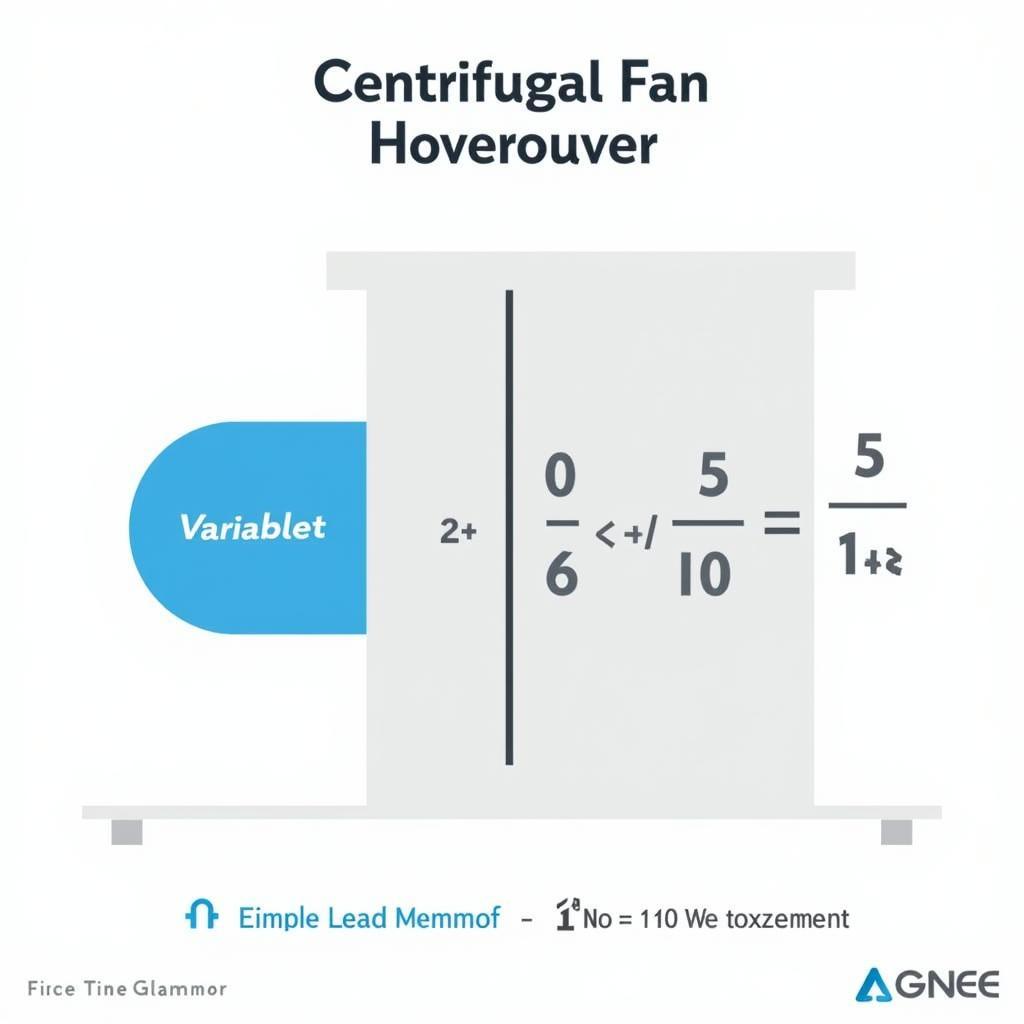Understanding how to calculate the horsepower of centrifugal exhaust fans is crucial for optimizing industrial ventilation, ensuring workplace safety, and maximizing energy efficiency. Whether you’re a facility manager, engineer, or simply curious about the mechanics behind these powerful machines, this guide will provide you with a clear and comprehensive understanding of the calculation process.
Factors Influencing Centrifugal Exhaust Fan Horsepower
Before diving into the calculations, it’s important to grasp the key factors that influence the horsepower requirements of a centrifugal exhaust fan. These include:
- Airflow Rate (CFM): This refers to the volume of air the fan moves per minute, directly impacting the fan’s power needs. Higher CFM requires more horsepower.
- Static Pressure (Inches of Water Gauge): This measures the resistance the fan overcomes to move air through the system. Higher static pressure demands a more powerful fan.
- Fan Efficiency: Expressed as a percentage, this reflects how effectively the fan converts electrical power into airflow. A higher efficiency fan requires less horsepower for the same airflow and pressure.
- Air Density: Air density varies with temperature and altitude. Denser air requires more horsepower to move at the same rate.
Calculating Horsepower: The Formula
The industry-standard formula for calculating centrifugal exhaust fan horsepower is:
Horsepower (HP) = (CFM x Static Pressure) / (6356 x Fan Efficiency)
Let’s break down each component:
- CFM: Cubic Feet per Minute, representing the airflow rate.
- Static Pressure: Measured in inches of water gauge, representing the system resistance.
- 6356: A constant used for unit conversion.
- Fan Efficiency: Represented as a decimal (e.g., 80% efficiency = 0.80).
 Centrifugal Fan Horsepower Formula
Centrifugal Fan Horsepower Formula
Step-by-Step Calculation Guide
- Determine Airflow Requirements (CFM): This involves factors like the size of the space, the number of air changes required per hour, and specific industry standards.
- Calculate System Static Pressure: This involves accounting for ductwork resistance, air filters, and other components affecting airflow.
- Determine Fan Efficiency: Consult the manufacturer’s specifications for the chosen fan model.
- Plug Values into the Formula: Carefully substitute the determined values into the horsepower formula.
Example Calculation
Let’s say you need to ventilate a workshop requiring 5,000 CFM with a system static pressure of 2 inches of water gauge. You’ve selected a fan with an 80% efficiency.
Applying the formula:
HP = (5,000 x 2) / (6356 x 0.80) = 1.96 HP
Therefore, you would need a centrifugal exhaust fan with approximately 1.96 horsepower to meet the workshop’s ventilation requirements.
Considerations for Optimal Fan Selection
While the horsepower calculation provides a starting point, selecting the right centrifugal exhaust fan involves additional considerations:
- Motor Type: Consider single-phase or three-phase power supply requirements.
- Drive Arrangement: Direct drive or belt drive options impact efficiency and maintenance needs.
- Fan Material: Choose materials compatible with the intended application and environment.
- Noise Levels: Opt for fans with acceptable noise levels for the intended space.
Frequently Asked Questions
Q: What is the difference between brake horsepower (BHP) and horsepower (HP)?
A: BHP measures the power delivered directly to the fan shaft, while HP refers to the power output after accounting for losses within the fan itself.
Q: Can I use a higher horsepower fan than calculated?
A: While possible, it can lead to increased energy consumption and unnecessary wear and tear.
Conclusion
Accurately calculating the horsepower of centrifugal exhaust fans ensures optimal performance, efficiency, and longevity. By understanding the factors involved and applying the formula correctly, you can make informed decisions regarding fan selection and optimize your ventilation systems. Remember to consult with qualified HVAC professionals for complex projects and specific application needs.
For expert guidance and tailored solutions for your ventilation needs, contact our team at Phone Number: 0903426737, Email: fansbongda@gmail.com or visit us at Address: Group 9, Area 6, Gieng Day Ward, Ha Long City, Quang Ninh, Vietnam. We are available 24/7 to assist you.


